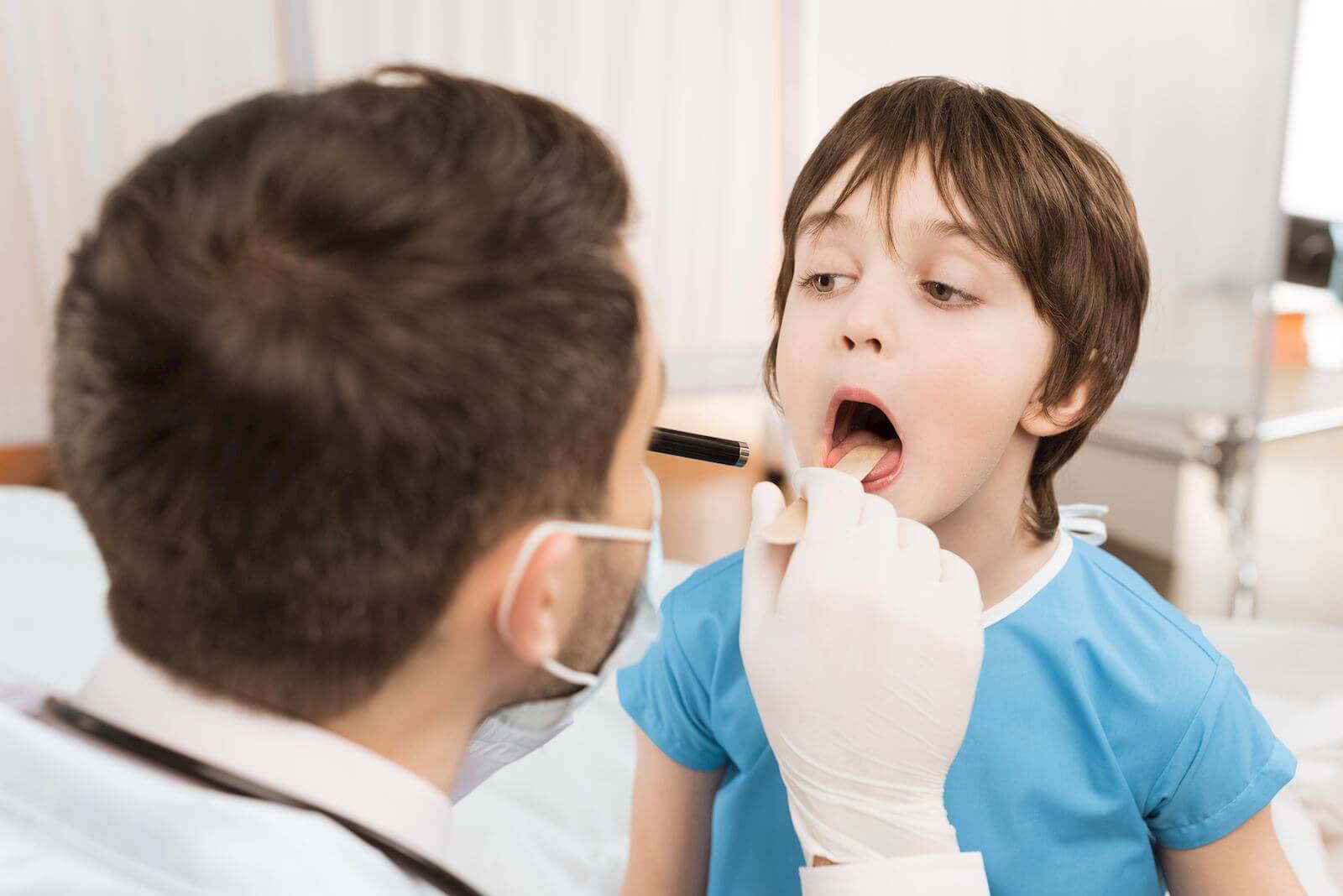It happens to every parent. You pick up your kid from school or daycare, only to find they are suffering from symptoms they didn’t have when you dropped them off. And your pediatrician or family doctor’s office is already closed.
What do you do?
“Trust your intuition. You know your child best,” says Brandon Goble, DO, a physician at The Iowa Clinic Urgent Care in West Des Moines. “When you feel your kid is not acting right, that’s the time — despite any of their symptoms — to come in.”
Urgent Care provides reliable pediatric care.
It’s hard to trust your child’s health to someone other than the person who has seen them through every shot and sniffle since the day they were born. And when you go to an after hours clinic, you’re not even certain who will ultimately examine your kid.
But that’s what urgent care is for, to provide the care your family needs, when you need it. Because sicknesses are never convenient or constrained to office hours.
“At The Iowa Clinic, almost all of us are parents. So we get it. We’ve been on the flip side of it, awake at 2am wondering if our kids are going to be okay,” Dr. Goble says. “All of our providers have been trained in family medicine or pediatrics, too. So we all used to see our own pediatric patients before transitioning to urgent care.”
So even if you’ve never met your urgent care physician, you can be confident that they’re well-versed in any pediatric problem that might be affecting your child. And as the go-to for every last-minute sickness, they have special insights into which illnesses are currently spreading in the Des Moines area, which can make for a speedy diagnosis.
“The vast majority of illnesses are just viruses. That’s the typical thing that gets passed along, whether it manifests as a cough or cold or a bout of the stomach flu,” Dr. Goble says. “That’s the bread and butter of stuff that comes through with kids. A lot of times, it’s actually the same virus — it just manifests differently with different children.”
Certain signs always warrant an urgent care visit.
There are few words more frustrating for parents than, “It’s just a virus.” Your instincts tell you to do anything and everything you can to help your child feel better. Instead, you feel powerless — forced to wait and watch a virus run its course until your child is back to their best.
As COVID-19 made clear, there are many viruses we know little about or don’t have effective treatments for. But there are several things you can watch for that signal it's important to get your child checked out as opposed to waiting for your family doctor’s office to open up in the morning.
“Knowing when you can wait it out at home or need to come in for an evaluation — that’s a tough call. But there are things that worry us,” Dr. Goble says. These are all the worrying signs that warrant an Urgent Care visit, he says:
- Fevers that persist despite Tylenol or ibuprofen
- Decreased fluid intake
- Rashes
- Pulling at the ears
- Known contact with another sick child
It’s not just illness. Injury is another reason to bring your child to urgent care. Kids fall on the playground, get hurt around the house or suffer an athletic injury every day. Small cuts or lacerations, sprains and strains are all injuries that a doctor should evaluate. Even if you’re worried your kid broke a bone because they’re favoring a limb, that’s a perfect time to visit urgent care, Dr. Goble says.
“Ultimately, you know when your kid isn’t acting right. If you’re concerned, that’s enough for us to take it seriously and take a look. Even if it turns out to be nothing serious, there’s no such thing as a wasted visit.”
When you’re unsure, you have options.
Kids are resilient. Your child may be suffering one minute, only to bounce back the next after taking fever-reducing medication. And if they are generally happy and drinking plenty of water, you might be OK waiting it out until the morning.
But you can always call in to be sure. While the urgent care clinic is still open, you can get a gut check on whether your child should come in or, in more serious situations, head straight to the nearest emergency room.
“When we’re open, we’re more than happy to take a look at any kid. But there is a threshold to what we’re able to do in the clinic,” Dr. Goble says.
While Urgent Care might be able to provide answers and help your child get expedited care, there are still some instances where the ER is your best option:
- Big deformities, like a bone at an odd angle
- Large lacerations that require stitches (and possibly sedation)
- Inability or unwillingness to eat or drink
- Fever of 105° or higher
- Decreased urine output (or lack of wet diapers in babies)
- Extreme lethargy or unresponsive nature
- New symptoms with known underlying health conditions
“A lot of times, it’s the expedited care we’re worried about. We can see you, even take X-rays or let the ER know you’re coming. But we don’t want you and your child to wait in our office when the help you really need is at the hospital,” Dr. Goble says.
Emergency or run-of-the-mill cold, Urgent Care is always open to pediatric patients experiencing any issue, he says.
“If nothing else, we’re here for reassurance. You know your kid is not feeling okay. We’re here to tell you what’s wrong right away or see if we need to have your primary care provider follow up.”


